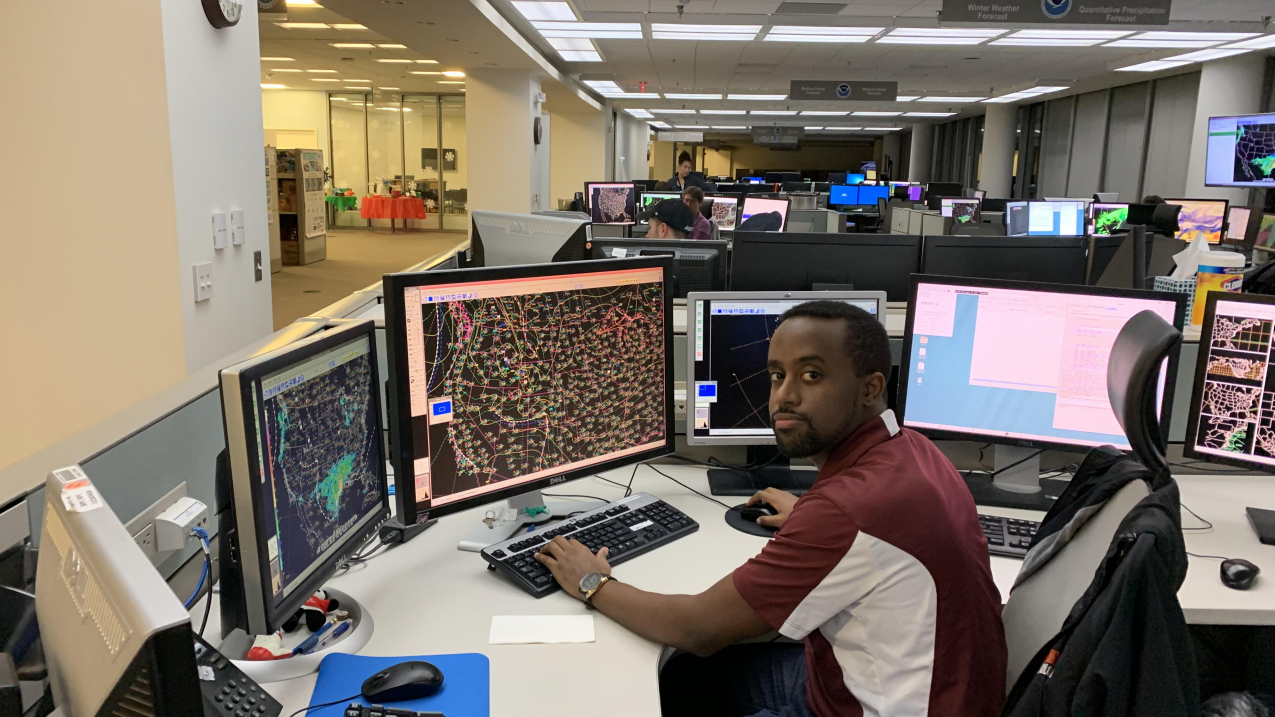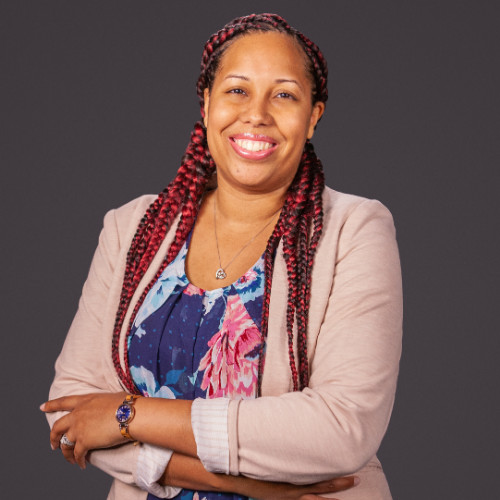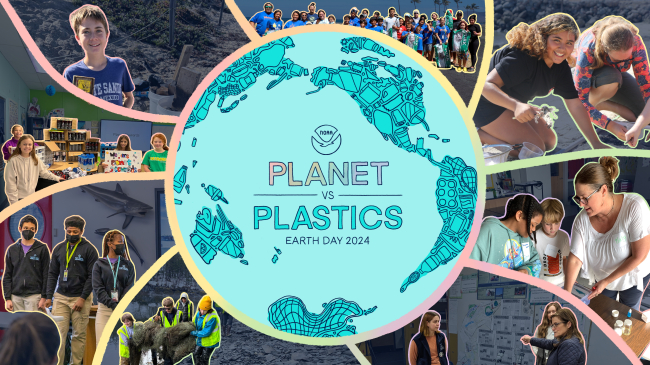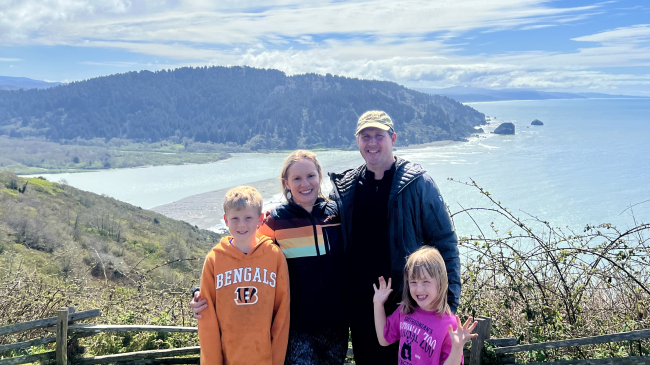Mussie Kebede had known he wanted to be a meteorologist since he was in middle school. “My interest [in weather] stemmed from a fascination with geography and winter storms. I would get excited at the prospect of school being canceled due to impending snowstorms,” he recollected. And this was more than the fleeting interest of a kid hoping for a snow day.

Mussie Kebede was one of the students supported by NOAA’s Educational Partnership Program with Minority Serving Institutions Cooperative Science Centers. He now works as a meteorologist for the National Weather Service, stationed in the Forecast Operations Branch of the Hydrometeorological Prediction Center. (Image credit: Mussie Kebede)
“The two interests eventually merged when I discovered the science of weather and its prediction,” he said. “My goal was to work for the National Weather Service (NWS) because it gave me the opportunity to work in public service." In 2018, Kebede achieved his goal and joined the NWS as a meteorologist at the Hydrometeorological Prediction Center.
Kebede is among the graduates supported by NOAA’s Educational Partnership Program with Minority Serving Institutions (EPP/MSI) Cooperative Science Centers (CSCs). He earned his master’s degree in atmospheric science from Howard University in Washington, D.C., the lead institution at the NOAA Center for Atmospheric Sciences and Meteorology offsite link (NCAS-M).
The CSC awards contribute candidates to a future NOAA workforce that reflects the diversity of the nation. These centers increase participation for all Americans in NOAA-mission STEM disciplines, natural resource management, and policy. Each CSC-supported graduate student has a NOAA mentor who guides their research. These students present their research at conferences and participate in internships at NOAA, developing skills that enhance their competitiveness for entering the workforce in NOAA-related fields. Since 2001, the EPP/MSI CSCs have awarded more than 1,977 postsecondary degrees in fields that are aligned with NOAA’s mission.
CSCs bring new talent from diverse communities, including underrepresented minorities, to the NOAA workforce. In 2018, EPP/MSI CSCs supported 222 students in degree programs (58 doctoral, 68 master’s, and 96 undergraduate). Thirteen CSC graduates entered the STEM workforce, seven of whom joined NOAA in either federal or contractor positions.

Cassandra Shivers-Williams, Ph.D., a graduate of NCAS-M, is the first Peter Lamb Postdoctoral Fellow at the Cooperative Institute for Mesoscale Meteorological Studies offsite link (CIMMS), a NOAA Cooperative Institute. She developed an interest in how people make decisions during disasters, which was influenced by her experiences in Louisiana during hurricanes Rita, Katrina, Ike, and Gustav. The CSCs helped Shivers-Williams turn her curiosity into a career. “I would not be at CIMMS without the training, networking, and fellowship opportunities afforded by NCAS-M,” Shivers-Williams noted. “Through my affiliation with NCAS-M, I became immersed in NOAA culture and explored career options.”
These graduates demonstrate that the CSCs contribute a well-trained, diverse candidate pool that supports America’s STEM competitiveness.
This story was originally published in the Fiscal Year 2018 NOAA Education Accomplishments Report.



